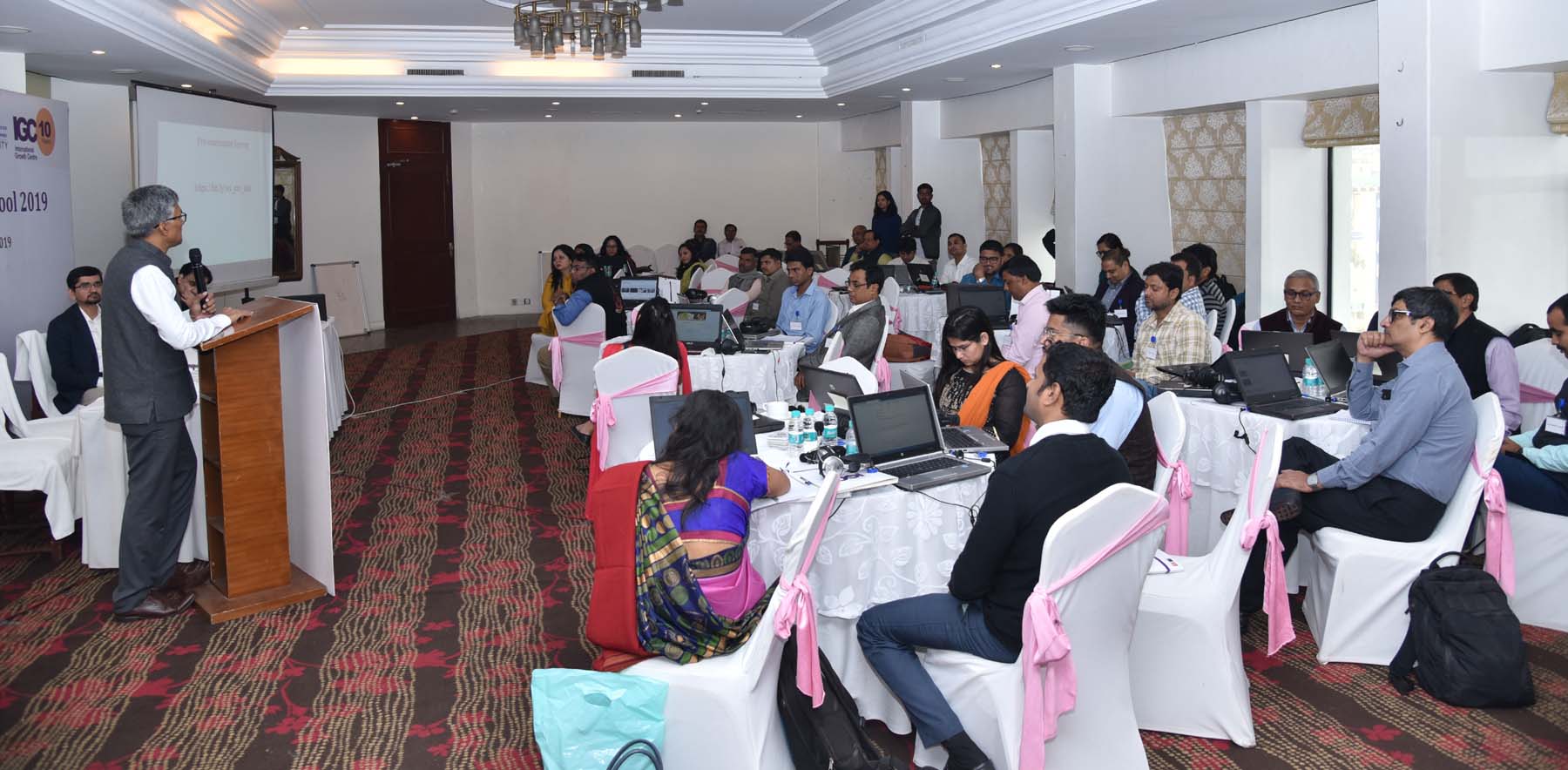Events of IGC

Patna 29 November. The International Growth Centre (IGC) based at the London School of Economics, in collaboration with the Asian Development Research Institute (ADRI), and Evidence for Policy Design (EPoD) India organized the two-day second capacity building program, Winter School-II at hotel Maurya in Patna on November 29, 2019. The 2nd Winter school focused on applying descriptive evidence and data systems on Health, Nutrition and Sanitation (HNS) indicators for the state of Bihar. State and District officials from JEEViKA, ICDS, WDC and DoES participated in the Winter School.
The focus was in keeping with the extensive use of descriptive evidence and data systems across the participating organizations. The module imparted participants with skills and frameworks to critically appraise the existing datasets on HNS indicators. The 2-day Winter School included in-class sessions and groupwork exercises. This Winter school will help participants to become better users of, and contributors to, data systems by: 1) imparting participants with skills and frameworks to critically appraise the evidence available and identify meaningful correlations and patterns that can help them better understand problems and needs of the targeted populations; 2)Developing a shared understanding of what makes a good data system, and how data systems can facilitate timely evidence informed decision-making, and 3) Equipping participants with key principles to help them contribute to effective data utilization in their organizations. Examples used from Niti Aayog aspirational districts indicators and other data sources, will help state departments to build appreciation of how reliable data and effective data systems can help us i) understand the status of health and nutrition outcomes at district and sub-district levels, ii) identify the population subgroups that demand urgent attention, iii) assess the implementation of some health and nutrition interventions at the state, district and sub-district levels to identify what interventions need immediate attention to improve the health and nutrition outcomes in the state.
The modules used in this school helped in sensitizing officials towards the urgency of addressing the malnutrition issue, the immediate and underlying determinants of malnutrition, the criticality of cross-department convergence in the 1000-day cycle and key aspects of growth monitoring. Concept of Theory of Change (ToC) was also introduced and covered how monitoring and tracking at every stage of the ToC will help in measuring progress and take corrective actions (input-activities-outputs-outcome-impact). An open discussion and sharing of experiences around the skills, incentives and resources of actors in the service delivery chain to think through the constraints in the data collection and utilization processes of the departments was also done. The modules were developed by the Harvard Kennedy School, and been effectively used in previous trainings at LBSNAA-Mussoorie, NHM-Madhya Pradesh and in Bihar with state officials. This 2-day programme will improve the state capacity relevant to M&E activities and data systems in Bihar.